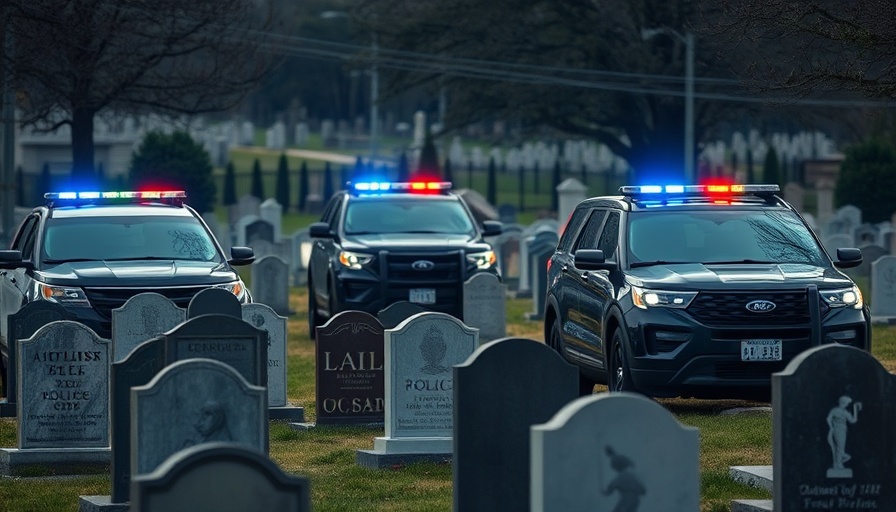
Tragic Loss in Texas: A Community Affected
The recent tragic death of Wood County Deputy Melissa Pollard highlights the inherent risks faced by law enforcement officers daily. Coming in the wake of increasing scrutiny over police safety and practices, this incident serves as a solemn reminder of their service's dangers. The fatal crash occurred when Deputy Pollard's patrol vehicle rear-ended a semitruck that was making a left turn, indicating the pressing need for improved on-the-road training for police officers. According to reports, there were no signs of braking prior to the collision, raising questions about the conditions leading to this tragic event and the protocols that govern police officer responses in dynamic traffic environments.
Understanding the Implications of Officer Safety
This incident is particularly poignant as it underscores a growing concern regarding police officer safety and operational protocols. Many police departments are revisiting their training programs, integrating advanced technologies such as AI analytics and real-time data feedback to prevent similar tragedies. This emphasis on technology-driven solutions could not only improve situational awareness for officers in the field but could also enhance public safety overall.
The Role of Community Support in Law Enforcement
As the Wood County Sheriff’s Office calls for prayers for Deputy Pollard’s family and colleagues, it’s essential to recognize the critical role that community support plays in law enforcement. Building positive police-community relations can contribute to enhanced officer safety. Communities that engage constructively with local police authority can establish trust benefits that lead to lower risks during officer patrols, keeping both community members and officers safer.
Exploring Police Recruitment and Retention Strategies
The loss of officers like Deputy Pollard raises important discussions around police recruitment and retention in a changing law enforcement landscape. With consistent public scrutiny, it is vital for police departments to develop new strategies that both attract and retain qualified personnel. This includes focusing on mental health support, comprehensive training programs, and accountability measures that can build a more resilient workforce while ensuring community trust.
Advancements in Police Training: The Future of Law Enforcement
Given the nature of the incident, many departments might consider reevaluating their training programs to include modules specifically focused on high-stress driving situations and emergency response. As evidenced by Deputy Pollard's crash, an emphasis on situational awareness and defensive driving could be monumental in curbing future tragedies. Utilizing driving simulators and virtual reality exercises can provide officers with safe environments to master essential skills.
Final Thoughts: The Ongoing Challenges and Solutions
The death of Deputy Pollard is a stark reminder that the responsibilities borne by law enforcement are fraught with peril. As police departments grapple with improving officer safety while fostering community relations, developing a comprehensive strategy that includes training, technology, and support systems is paramount. Continuous dialogue among law enforcement leaders, community members, and policymakers will be crucial in finding solutions that honor the service of dedicated officers like Melissa Pollard while reducing the risks they face in their daily duties.
If you care about the safety of our law enforcement professionals and your community, now is the time to advocate for change. Support local initiatives that aim to enhance police officer training, promote mental health resources, and strengthen community relations. Every voice counts in building a safer future for both the public and those who protect us.
 Add Row
Add Row  Add
Add 

 Add Element
Add Element  Add Row
Add Row 




Write A Comment